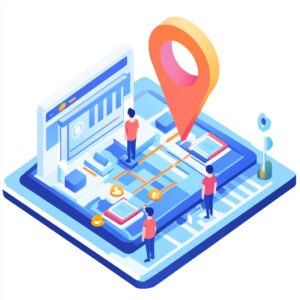Understanding what SEO mistakes to avoid will not only save you time and money, but also gives peace of mind that your SEO efforts are working. This work takes time, the efforts you put in won’t instantly provide results. Think of it as delayed gratification, like planting a harvest. It takes time and cultivation before you can reap the rewards.
1. Not Using Analytics
You can’t improve what you don’t measure. If you aren’t tracking your website’s performance, you’re in the dark. Tools like Google Analytics or Google Search Console show you which pages are performing well, where your traffic comes from, and how users interact with your site.
Using these analytic tools helps you keep track of which stradgies are working, and what needs to be fine tuned. It may come with a lot of micro managment and polishing, but using analytics like HotJar is a vital tool for knowing the trajectory of your SEO.
HotJar gives you videos that will show you how users interact with your website.

2. Skipping Local SEO
Local SEO is vital for businesses that depend on customers from their area. Not optimizing for local search means you’ll miss out on local traffic. Make sure to claim and update your Google Business profile, use location-based keywords such as ‘[Service] in [Location]’, and encourage local reviews.
Reviews have a direct impact on your Local SEO, boosting your Maps ranking instantly.
Using the tools granted by Local SEO will boost your online visiblity to help people in need of your services find you easily.

3. Not Matching Search Intent
People search for specific reasons, and your content needs to match those reasons. If someone is looking for a product review and you provide a blog post, they’ll bounce off your site quickly.
Understanding search intent—whether it’s informational, transactional, or navigational—helps you create the right kind of content to meet users’ needs.
Think of times when you were searching for information, maybe a recipe and the author gives exposition about his second dog he had when he was 7, their great aunt who faught in the war, or other stories unrelated, meanwhile you just want the recipe to bake some cookies.
Using the proper keywords for the proper pages helps guide users and Googles bots to make sense of what you are providing.

4. Ignoring HTTP and Server Issues
If your website has broken links or server errors, it harms your SEO and frustrates users. Regularly check for 404 errors and fix them to maintain a smooth browsing experience. You should also monitor your server’s performance to avoid disruptions.
Can’t have traffic with a faulty website.
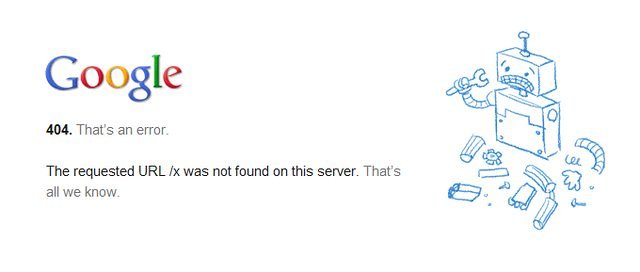
5. No SEO Plan
An SEO plan is like a map. Without one, you will be lost.
Many businesses start SEO without a solid plan, which wastes time and money. A clear strategy means you target the right audience with the right keywords, content, and tactics.
Having a plotted out plan will give you the vision to see things through.
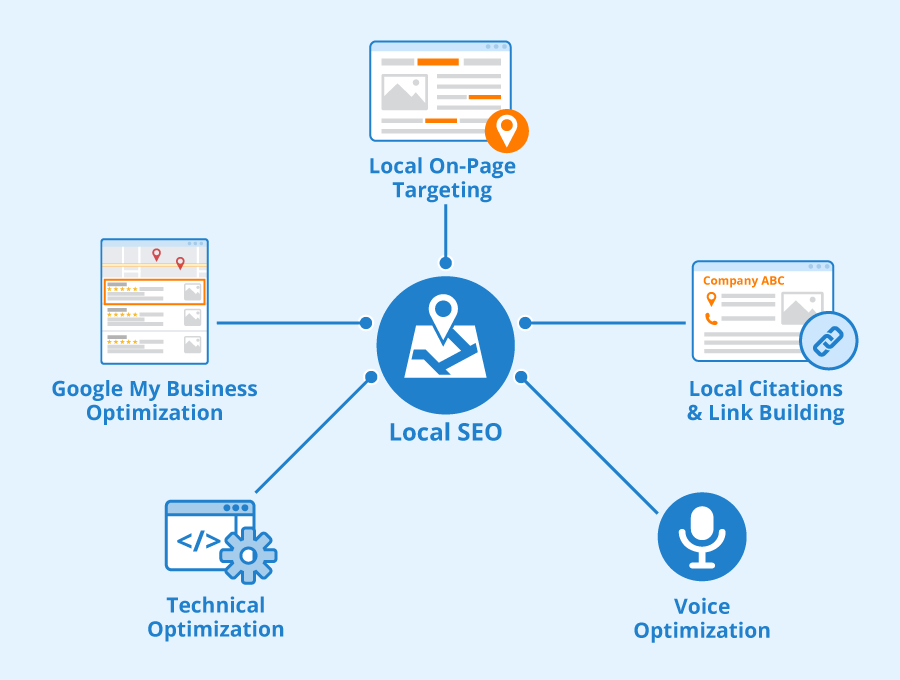
6. Not Using 301 Redirects
When you delete or move a page, you need to set up a 301 redirect. Without it, users and search engines will hit a dead-end (404 error). This not only frustrates users but can also harm your rankings, as broken links lower trust with search engines. A 301 redirect tells search engines to forward traffic to the updated page.
This helps your preserve your SEO, by keeping the trust with the search engines, and users will be all the more grateful for it.

7. Ignoring Social Media
Social media might not directly impact SEO rankings, but it helps with visibility. Sharing content on platforms like Facebook, Twitter, and Instagram drives traffic to your site and can boost your overall SEO efforts.
Many people in the world use social media, having your site on social media assists potential clients see your business and in turn can spark their curiousity to what you have to offer.

8. Not Using Hreflang Tags for Multilingual Sites
Hreflang Tags are help search engines provide the correct version of a page to users based on their regional language.
Below is an example of an English Language website for Americans.

They can be used to identify content that may be the same language but intended for different regions.
Such as the page being in english, but users in United States and Great Britan would expect to see prices in dollars and pounds, respectively.
9. Skipping Canonical Tags
Canonical tags is an HTML element that tells search engines which page of the preferred version of a group of similar or duplicate pages.
They tell search engines to index and deliever the URL in search reults. This will help Google’s crawlers find the best page for a group of duplicates, boosting your ranking in search result pages or SERPs.
It’s best to do this even if there aren’t mutliple versions of the page.
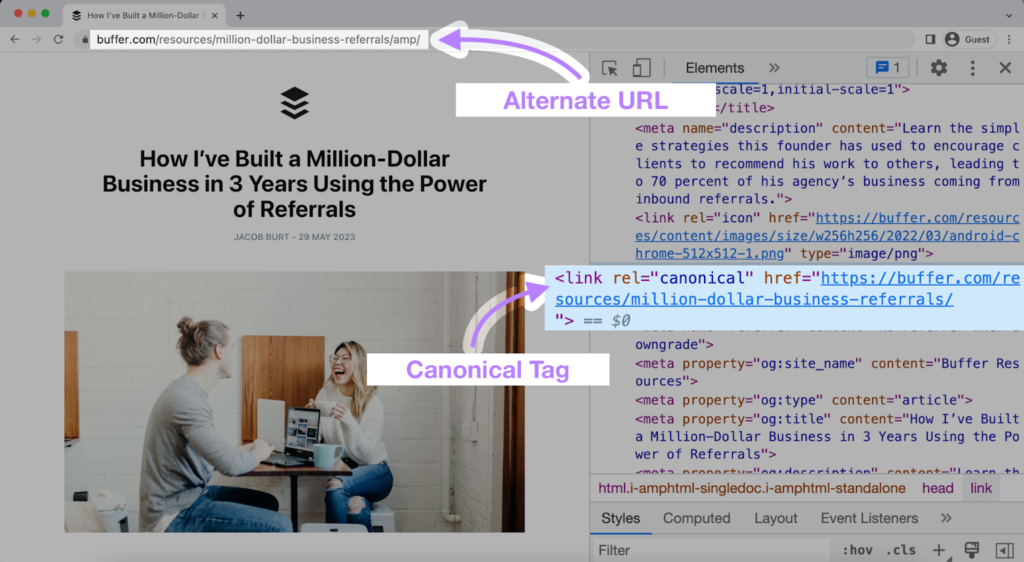
10. Not Having a Blog
Blogs are content rich nodes on websites that Google’s crawlers love. By ultilzing blogs you give your website fresh and content rich information, refreshing and rounding out your webpage.
You can create blogs effortless around your service, and refresh it consistently.
Long-tail keywords are not only attention grabbers for the Google bots but also users seeking information you have in your tool belt.
It’s best to utlize blogs as it can endlessly be accomplished.

11. Slow Website
Speed matters, this is the modern digital age, not 1999 anymore.
Users don’t like waiting for images to load, words to come in blurry or incomplete, or that annoying little red x leaves users to use their imagination.
Reducing your file sizes, minifying your code, or caching content will boost speeds. You can use tools like SEMRush’s Site audit, or Google PageSpeed Insights to get information on where your speed is at.

12. Not Knowing Your Audience
Much like 3. [matching search intents] when you aren’t targeting your intended audience, you are basically wasting your energy.
Start off by defining your audience, consider demographics, pyschographics, user behaviors. Age, Gender, Location, Intrests and Pain Points.
Check out your competiors, see their audience and see how they’re targeting thier audience.
Use Google Analytics to get a good view of when your audience is viewing your content, what pages they spend the most time, and whether they’re on desktop or their mobile device.

13. Pages Not Indexed
If your pages aren’t indexed by search engines, they won’t show up in search results, no matter how great the content is.
Regularly check Google Search Console for indexing issues and fix any errors that prevent search engines from discovering your content.
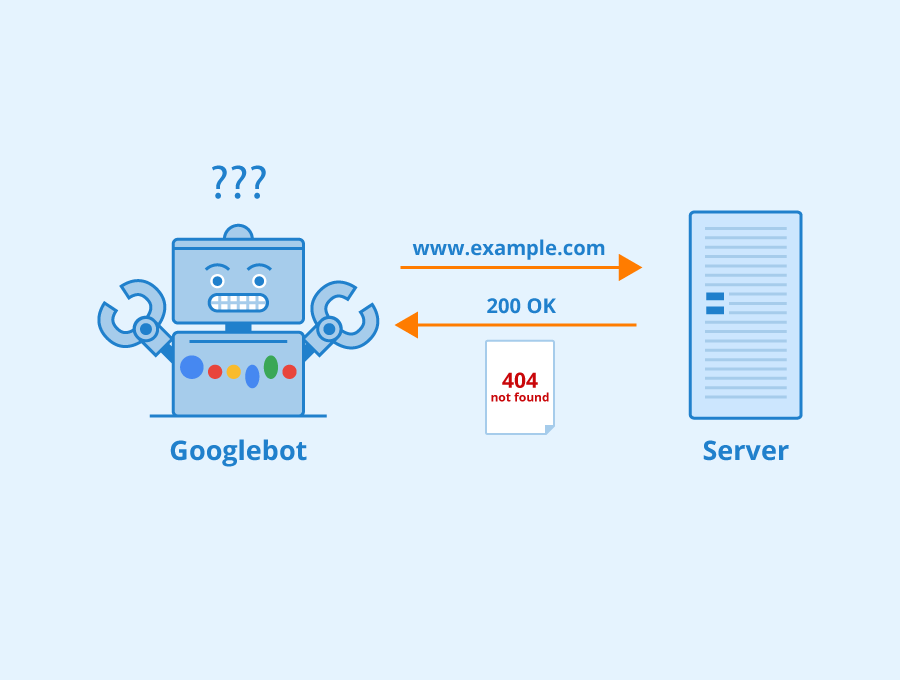
14. No Keyword Research
Keyword research is the foundation of good SEO.
Use tools like Google Keyword Planner or Ahrefs to find out what people in your area are searching for.
Using keywords will narrow down your niche helping users searching for services you may provide.
For example if you are a plumber in Ohio you might want to incoperate keywords such as:
Emergency plumbing services
Plumbing repairs
Water heater installation
Plumbing leak detection
Slab leak plumbers
Water leak plumbers
Emergency pipe repair in Ohio
Gas line repair
Tankless water heater installation

15. Copying Content
Stealing content from other sites might seem like a shortcut, but just as any unethical shortcut it has its rammifactoins. Google penalizes websites for copied content, and this can drop your rankings. It shows you’re untrustworthy and so Google will take note about your bad business practices and punish you for it.
Creating orignal authentic content is always the best way. Google and Users want to see fresh content.

16. No Clear Call to Action (CTA)
A website without clear CTAs confuses users.
Use bold and simple CTAs like “Contact Us” or “Buy Now” to guide visitors through your site and increase conversions.
CTAs help guide users to continue With you. Think of it as prompting them to get in contact with you, which is what you’re going for.

17. Not Optimizing for Voice Search
Ignoring conversational keywords will have you missing out on this new and fastly growing feature.
More users everyday are utlizing the ease of acess that is voice search so added elements like a FAQ page for your website that provide question keywords and conversational answers can help match those voice activated search queires.
Using a schema markup will make search results more relevant, as well as incorperating long-tail keywords, such as ‘Organic Coffee Shops Near Me’
Most users using this feature will be on mobile, so make sure your site is mobile friendly.

18. No HTTPS
HTTPS or Hypertext Transfer Protocol Secure is a secure version of HTTP (Hypertext Transfer Protocol), and is important for keeping your website secure.
Users will bounce off a site that is flagged as unsafe, and Google will lower your ranking as your website could potentially harm users. HTTPs encrypts most information (and your data) and uses Transport Layer Security (TLS) or Secure Sockets Layer (SSL) to encrypt communication.
Using HTTPs in todays age is vital, and a must have if you are going to be a responsible website owner.

19. Skipping Accelerated Mobile Pages (AMPs)
Accelerated Mobile Pages (AMPs) is a open source framework that helps build mobile web pages that load quickly. They’re built using a streamlined version of HTML and CSS, and dont include excessive code frameworks.
AMPs is related to how fast your website will load on mobile, thus increasing user experience and rention.
It helps your visiblity on Google search quieres, and a minimal investment to set up.

20. Not Optimizing URLs
URLs should be short, descriptive, and contain relevant keywords. URLs that are cluttered with random numbers or characters confuse both users and search engines. Clean URLs improve user experience and can boost rankings.

21. Focusing on Link Quantity Over Quality
Getting as many backlinks as possible used to work, but that’s outdated.
Now, getting backlinks should revolve around the relevance of your topic, has high domain authority, and is trusted by search engines and users.
Backlinks should make sense with the context of the rest of the page. This provides search engines a signal like a beacon, helping guide users seeking relevant information.

22. Ignoring Local Citations
Local citations—mentions of your business’s name, address, and phone number (NAP) on local directories and websites—help improve local SEO.
It doesn’t take very long and will boost your visiablity when people are searching for your related industry.
Be sure to get listed on local directories like Yelp, Yellow Pages, and local business associations.

23. Too Many Internal Links
Internal links help visitors navigate your site, but overloading a page with them will make it harder for search engines to understand the importance of your pages.
It weakens the structure of your website by confusing where the information is, which information is important, and generally looks like spam.
Interal links are important for SEO, but too many of them will clog everything down.
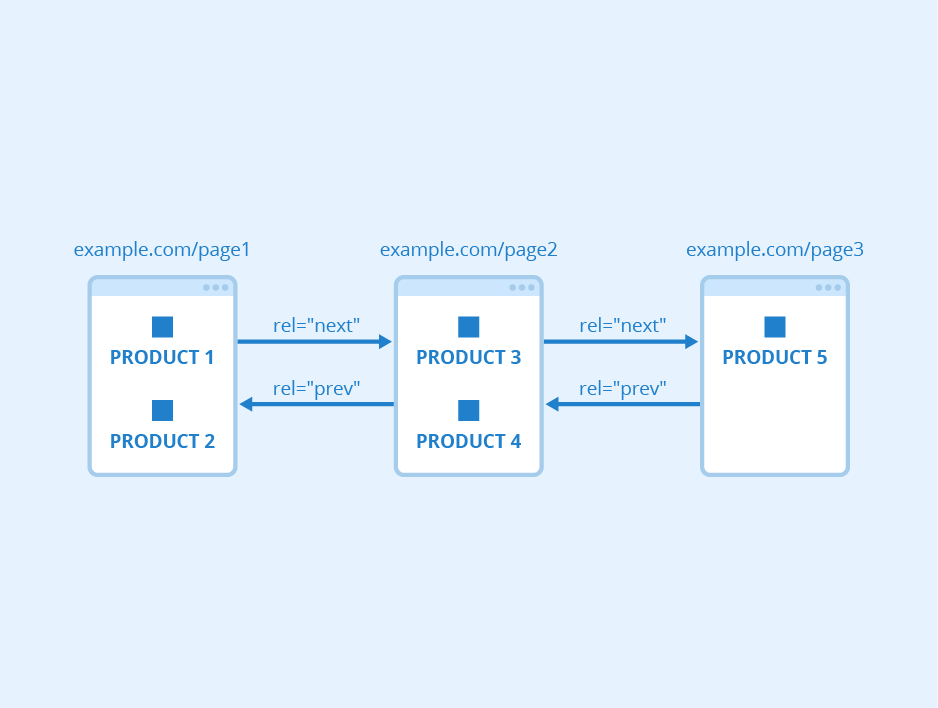
24. Not Updating Old Content
Search engines like fresh content. Not updating your old content regularly can hurt its relevance and rankings.
Rather than trashing your old pages, give them a overhaul, and a fresh polish. Update any infomration and pictures to stay relevant and stay ranking. Stagnated websites will go down the ranking list as they lack fresh information that can be outdated.

25. Over-Optimized Anchor Text
Anchor text is important for SEO, but over-optimizing it by stuffing it with keywords can backfire.
Google views over-optimized anch text as manipulative and unnatural.
Keeping it simple yet direct is what Google searches for, as to avoid thinking it as spammy or malicious.
Breaking it down with synonyms or broad match anchor text, are good practices to use to keep your anchor text nice and neat.
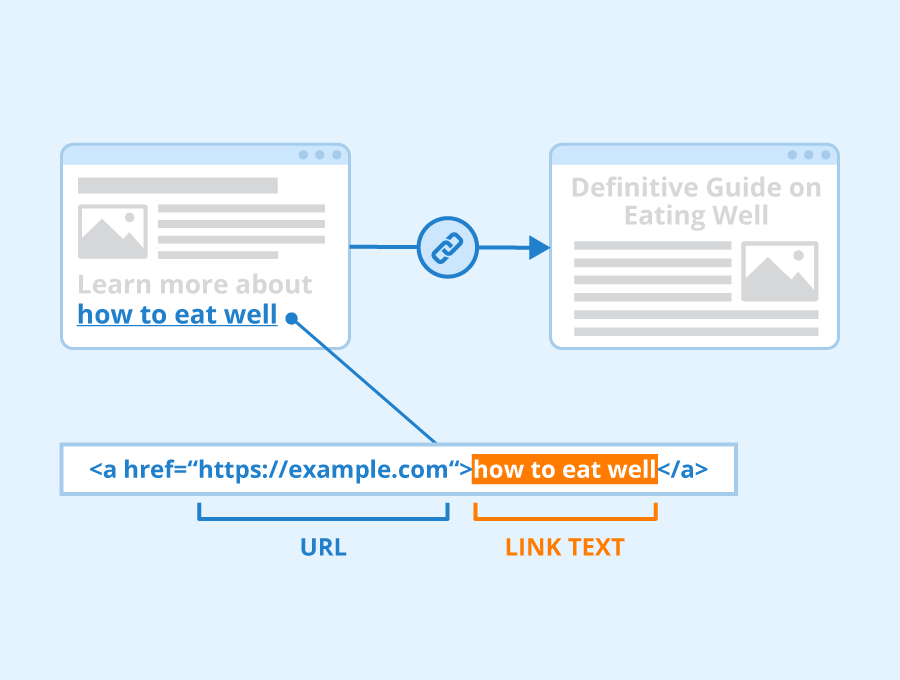
26. Missing Out on Video SEO
Videos help users get engaged with your content, but if the videos are optmized they won’t help your SEO.
You should only have one, that is sitemapped, flush with metadata, and structured data.
Making sure your video is optmized for mobile is a must, as a vast majority of users will be on mobile. Clicking on a video on your phone and it not playing or not launching with the proper player can just be a waste of resources for you and your users.
You may want to provide a transcript so search engines understand the video’s message, it’s always an easy way to flush out seachablity with extra keywords.
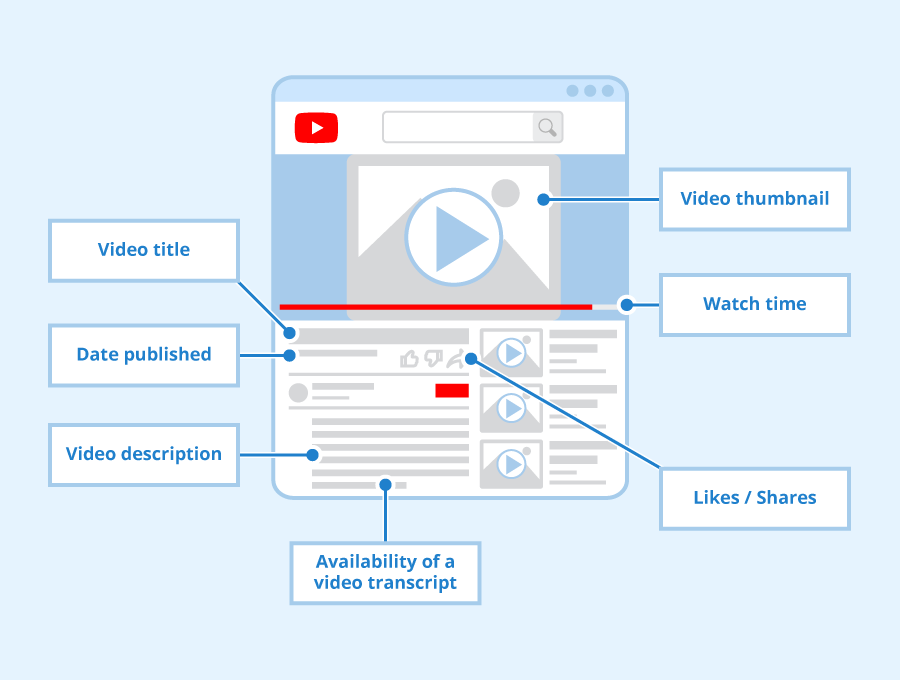
27. No Mobile-Friendly Site
About 90% of the worlds population has a cell phone, and you can rest assured that just about everyone uses the web in one way or another from their phone.
Optimizing your website to be mobile friendly is a must in todays rapid digital age. Without a mobile friendly webpage you will lose out on visitors.
Having a Mobile-friendly site does improve your ranking with SEO, as it is easier for users and Search Engines to navigate.
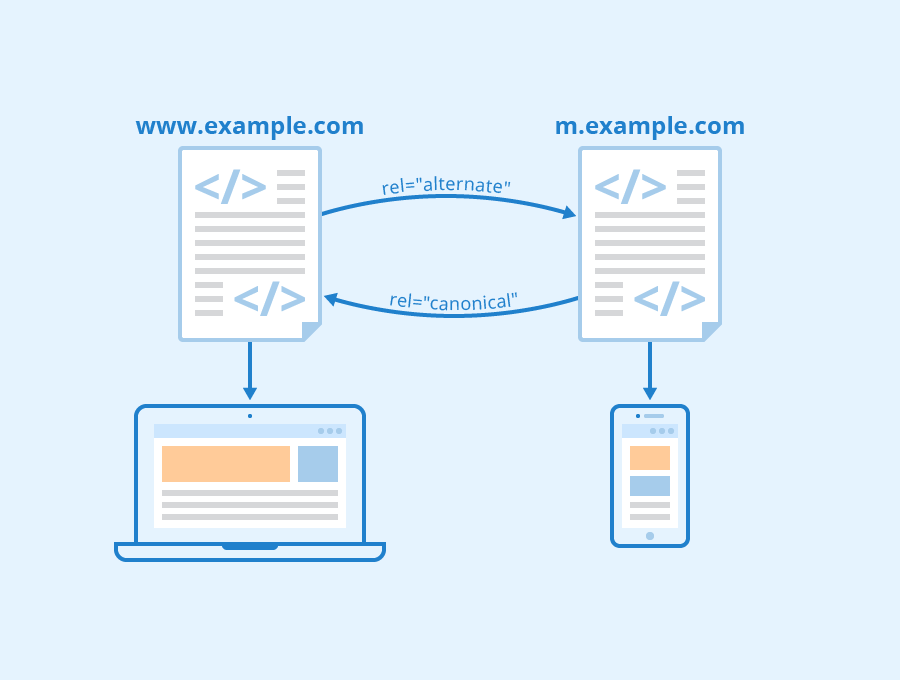
28. Forgetting About External Links
While internal links are important, external links to reputable sources also build your credibility.
Providing references with quality external links improve your websites authority. Overusing external links makes you look spammy, harming your seo. Aim for 3-5 per content.
Creating great content will have others knocking on your door to write guests posts and having others use your links in promotion with their website.
Just be careful with which sites, because externally linking to a spammy or malicious site will negatively impact your SEO.
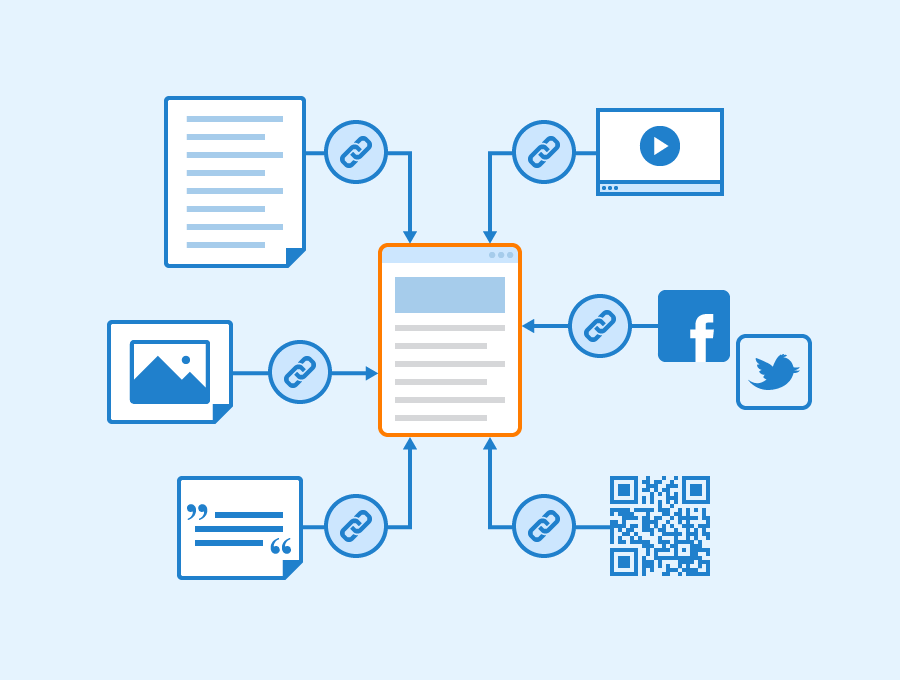
29. Low-Quality Content
Low-Quality Content is just content that doesn’t serve any purpose for the audience.
It can be poorly written, unoriginal, or outdated. Going to a website with low-quality content will make you want to bounce off the website very quickly. This isn’t YouTube, using Click-Bait titles just misleads users and Search Bots, hurting your relevance and authority.
Filler content is just fluff content that doesn’t hold any weight, doesn’t add anything and generally wastes time.

30. No Good Links
Much like 21, Links from trusted websites show search engines that your content is valuable.
It’s not about quantity, it’s about quality. Having no links shows that you aren’t trusted, and will impact your SEO. Focus on this with a friendly professional approach by reaching out to other relevant creators to give each other a digital handshake.
You can hire people to get the links for you, but doing it yourself yeilds greater rewards.
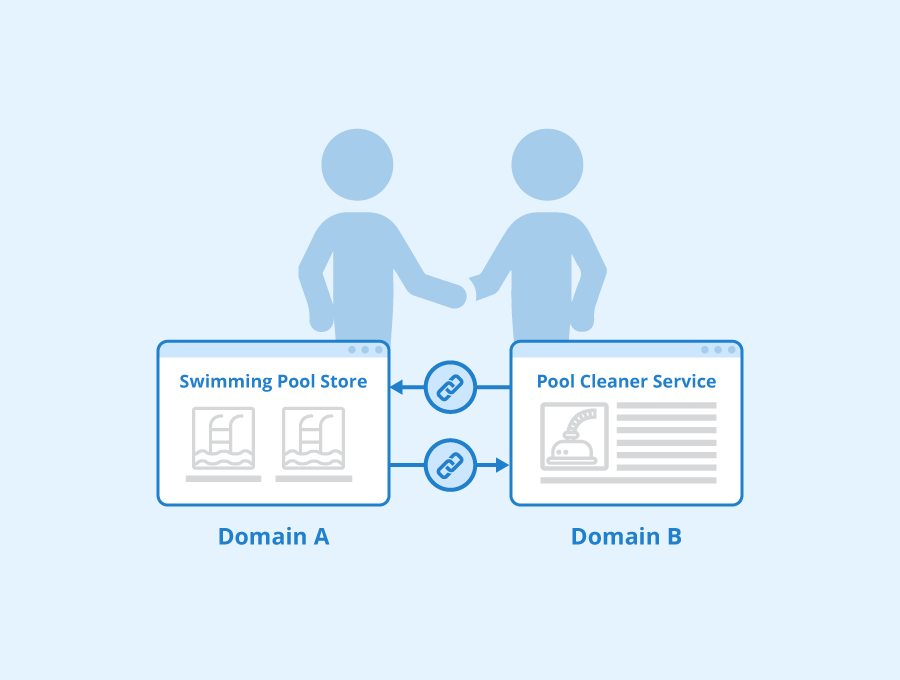
31. Neglecting User Experience (UX)
If your website is hard to navigate or doesn’t have features like speed optmized, users will bounce off your website pretty fast.
Take into account how users will navigate, using HotJar and analytic tools to narrow down what works and what doesn’t can help you create a better time for any user visiting your website.
Think of times you sat there waiting for a website to load, or got 404 pages, fuzzy thumbnails that you can’t make out and other pain points websites seemingly left unaddressed.
It’s not fun for anyone, and Google sees this.
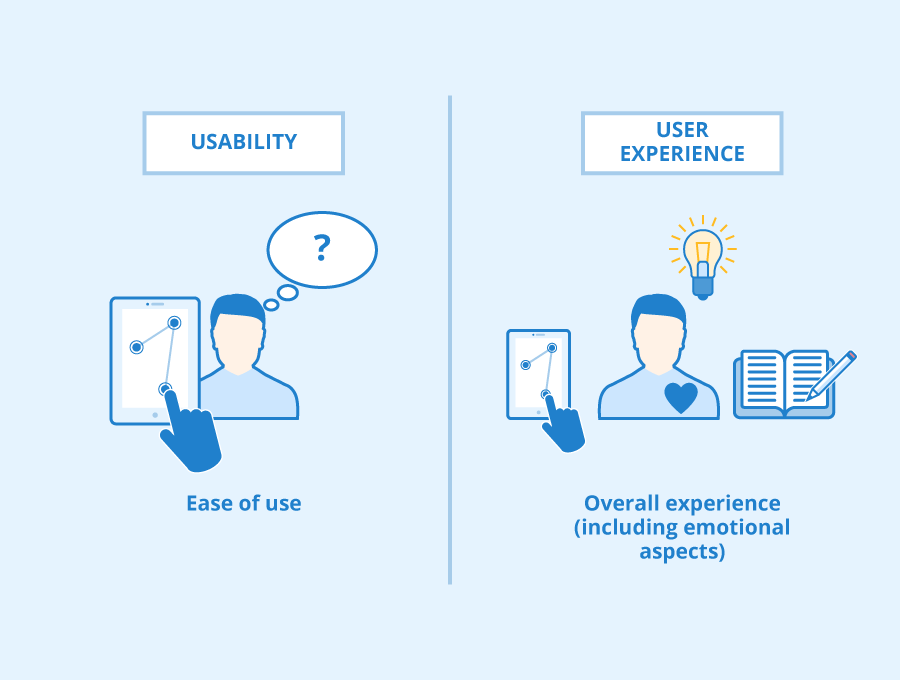
32. Forgetting About Branding
SEO isn’t just about keywords; it’s also about building a strong brand.
Branding is business 101, without a brand you don’t stand much of a chance in marketing. We all know certain brands, we’ve probably had the golden arches burned into our DNA at this point. Branding helps search algotrims trust you even more.
Optmize for non-brand keywords to help introduce new users to your website and brand.
Utliziting mutlimedia can help showcase your brands vision, giving others an oppotunity to see the culture and meaning behind your brand.

33. Relying Solely on Google
Google is the dominant search engine, but it’s not the only search engine users will be using.
Bing has been growing in influence over the past 2 years, It rewards it’s users for searching providing money or giftcards simply for doing what you would do on Google.
Diversifying your website to be accessable with other search engines will spread a wider net on potential visitors to your website.

34. Skipping Meta Tags
Meta tags are small but important. A meta title and description tell search engines and users what your page is about.
They don’t appear on the page itself but the page’s source code.
If you don’t write one, search engines will do it for you, and that isn’t optimal. You can be left with a poor meta tag that can go against your sites relevance.
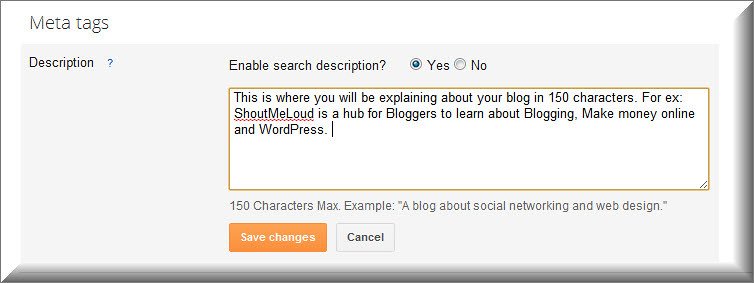
35. Ignoring Schema Markup
Schema Markup improves search engines ability to crawl your site, helping your SEO ranking.
By ignoring schema markup, you’re missing opportunities to stand out and gain visibility. Implementing it helps search engines identify important data like reviews, prices, and events.
Having a Schema Markup can lead to higher-quality traffic and increased engagement with your website and potentially your services.

36. Keyword Stuffing
Keyword stuffing used to be an SEO trick, but now it’s a fast way to get penalized. Overusing keywords makes you not only look spammy, but can subtract from your content.
Search engines see it as a manipulation trick, and search engines prefer to have trust with the users.
Readers don’t really appreciate it, cause it’s pretty easy to tell what you are trying to do, and trying to play tricks on readers is a very fast way to put them off.
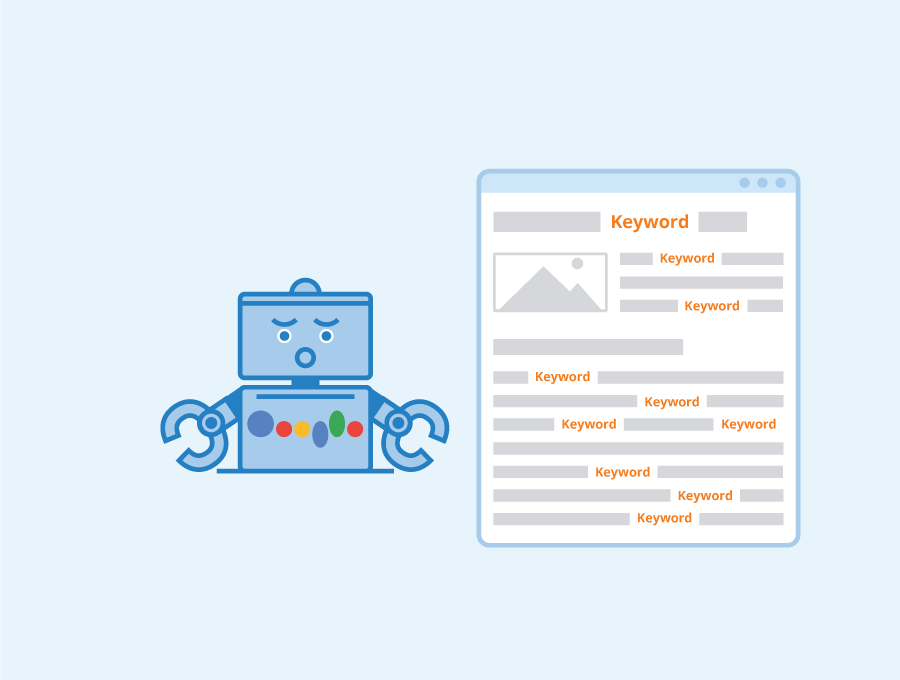
37. Skipping Competitor Analysis
Of course, the #1 Competitor you should have is who you were yesterday, but not taking notes of your competitors behaviors on their website can stifle your potential growth.
You shouldn’t look at it with envy or pity, but learn from what they’re doing, see if any of it works. Don’t steal what they’re doing because you will hurt your SEO with search engines, but understanding how others operate is a easy way to improve yourself.

38. Forgetting About Image Optimization
Large images will bog your site down, causing it to be slow for any potential user.
I personally use photos and switch PNG’s to JPG format, and reduce its file size to about 160kb.
Doing this can save your website from being sluggish, helping both search engines and users navigate with ease.
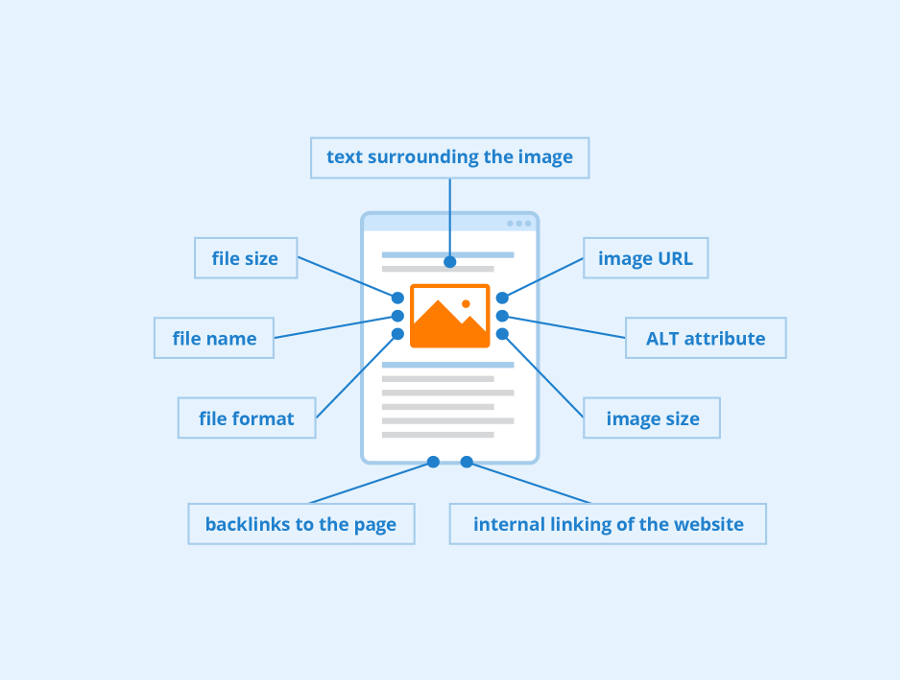
39. No Content Clusters
Content clusters are a way to organize related topics around a central theme or pillar page.
Content clusters use levels of web pages to organize your content by relevance to the topic.
This helps establish authority by showing users and search engines that you have a lot of knowledge on the topic. In turn helping users find your content.
It helps your pages relevance, and authority, which are your keys to unlocking great SEO standing.
Although Google crawlers work extremely hard, the easier they can crawl the more they like it, it translates to users being able to easily navigate your information.






